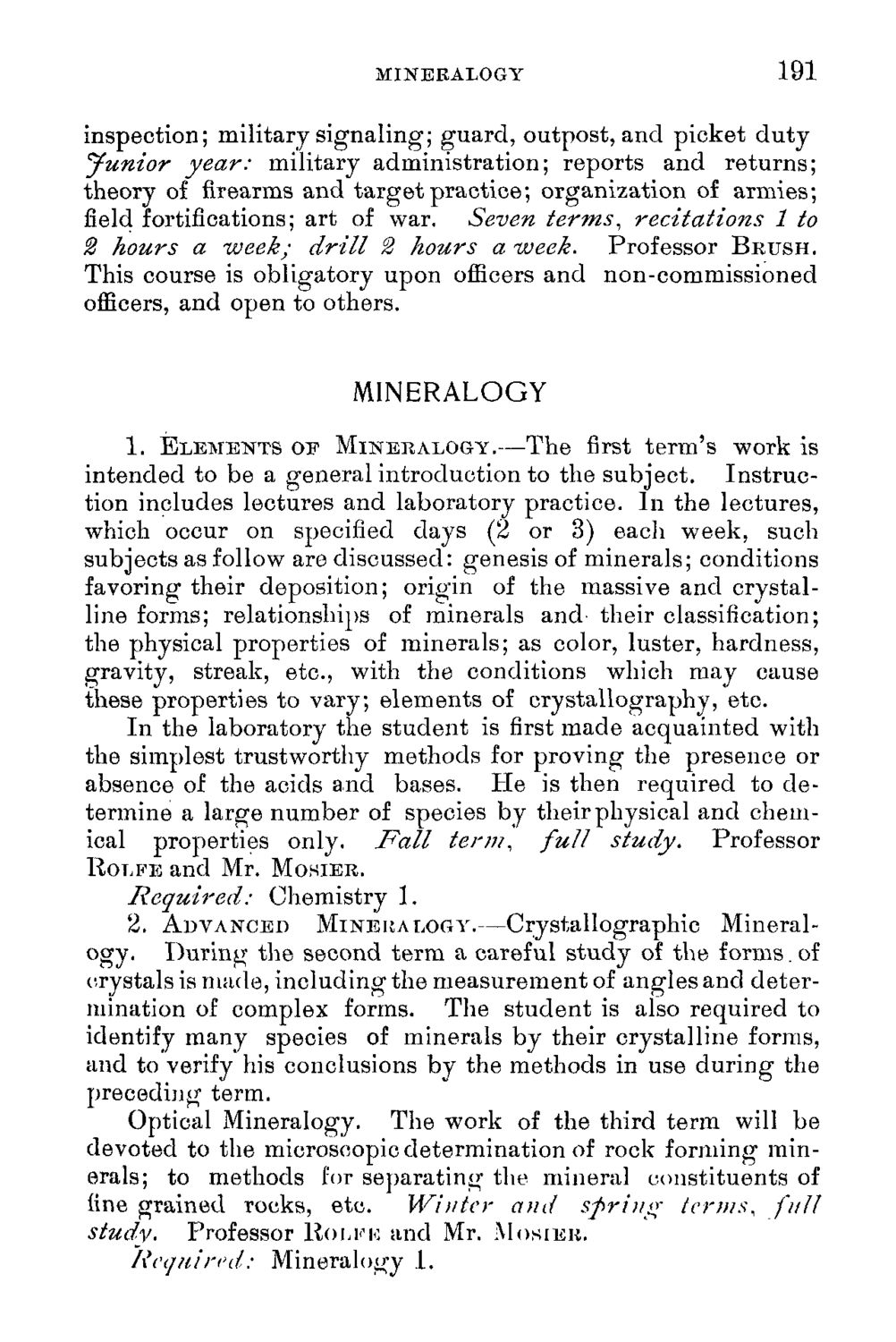| |
| |
Caption: Course Catalog - 1895-1896
This is a reduced-resolution page image for fast online browsing.

EXTRACTED TEXT FROM PAGE:
MINEKALOGY 191 inspection; military signaling; guard, outpost, and picket duty Junior year: military administration; reports and returns; theory of firearms and target practice; organization of armies; field fortifications; art of war. Seven terms, recitations 1 to 2 hours a -week; drill 2 hours a week. Professor BRUSH. This course is obligatory upon officers and non-commissioned officers, and open to others. MINERALOGY 1. ELEMENTS OF MINERALOGY.—The first term's work is intended to be a general introduction to the subject. Instruction includes lectures and laboratory practice. In the lectures, which occur on specified days (2 or 3) eacli week, such subjects as follow are discussed: genesis of minerals; conditions favoring their deposition; origin of the massive and crystalline forms; relationships of minerals and their classification; the physical properties of minerals; as color, luster, hardness, gravity, streak, etc., with the conditions which may cause these properties to vary; elements of crystallography, etc. In the laboratory the student is first made acquainted with the simplest trustworthy methods for proving the presence or absence of the acids and bases. He is then required to determine a large number of species by theirphysical and chemical properties only. Fall term, full study. Professor ROLPE and Mr. MOSIER. Required: Chemistry 1. 2. ADVANCED MINERALOGY.—Crystallographic Mineral- ogy. During the second term a careful study of the forms, of crystals is made, including the measurement of angles and determination of complex forms. The student is also required to identify many species of minerals by their crystalline forms, and to verify his conclusions by the methods in use during the preceding term. Optical Mineralogy. The work of the third term will be devoted to the microscopic determination of rock forming minerals; to methods for separating the mineral constituents of fine grained rocks, etc. Winter and spring terms, full study. Professor ROLKK and Mr. MOSIEK. Required: Mineralogy 1.
| |